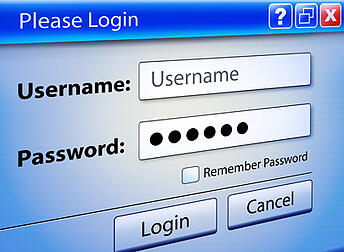 By now, many of you are probably aware of the most recent cloud breach where a large cache of celebrity nude photos was released on a forum board on 4chan. Though details are still emerging, the prevalent theory is that the hackers managed to gain access to the pictures by accessing the celebrity’s Apple iCloud accounts.
By now, many of you are probably aware of the most recent cloud breach where a large cache of celebrity nude photos was released on a forum board on 4chan. Though details are still emerging, the prevalent theory is that the hackers managed to gain access to the pictures by accessing the celebrity’s Apple iCloud accounts.
4 Corporate Strategies to Secure Your Cloud Data
1. Multi-factor authentication
Confirming that the query is from an authorized user who is accessing the data from an authorized computer can significantly narrow down the number of access points, and in the event of a leak, makes it much easier to trace where that leak came from. In fact, here at Daymark, in order to maintain our SOC-2 certification, we must keep a checklist of items to compare against industry best practices, as well as complete a task list every week to make sure that none of the configuration settings have deviated from established norms.
2. Regular cloud backups
Though everyone is familiar with regular backups, fewer people are familiar with how important backups of your cloud infrastructure is. Cloud providers can ensure that your data stays up, but if, for example, a disgruntled ex-employee decides to delete all of your records, there is nothing they can do to restore that data.
3. Defense in depth
Regular firewalls do a great job of keeping intruders out of the perimeter, but if they find a way in, the hackers usually find a nice gooey center to attack the rest of your infrastructure. Windows Firewall provides OS level protection that can give you better defense in case of a breach, but many administrators turn it off. An alternate solution is VMware NSX, which virtualizes the network layer, and can give you many similar protection benefits.
4. Regular patching
The recent Heartbleed bug, and now, the ShellShock bug in Bash, shows just how vulnerable today’s software is, even open source ones. Moving your workload to the cloud provides an even broader platform for which hackers can attack. It is therefore critical to stay on top of security patches for all of your datacenter components, and if a patch is unavailable, protect the data some other way.
Is Your Corporate Data Safer in the Cloud?
About the Author
 Michael Chen is a Consultant at Daymark Solutions and specializes in virtualization, as well as backup and data recovery for enterprise companies in Financial Services, Telecomm, and Healthcare. Michael holds various certifications from VMware, EMC, Hitachi, and Symantec
Michael Chen is a Consultant at Daymark Solutions and specializes in virtualization, as well as backup and data recovery for enterprise companies in Financial Services, Telecomm, and Healthcare. Michael holds various certifications from VMware, EMC, Hitachi, and Symantec



